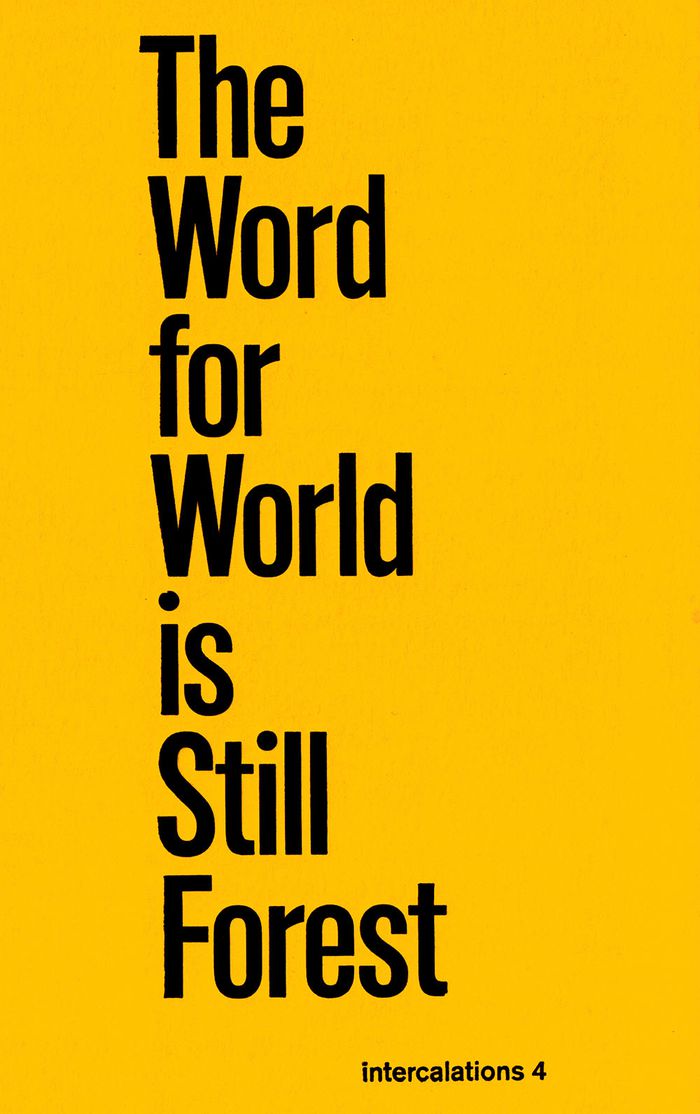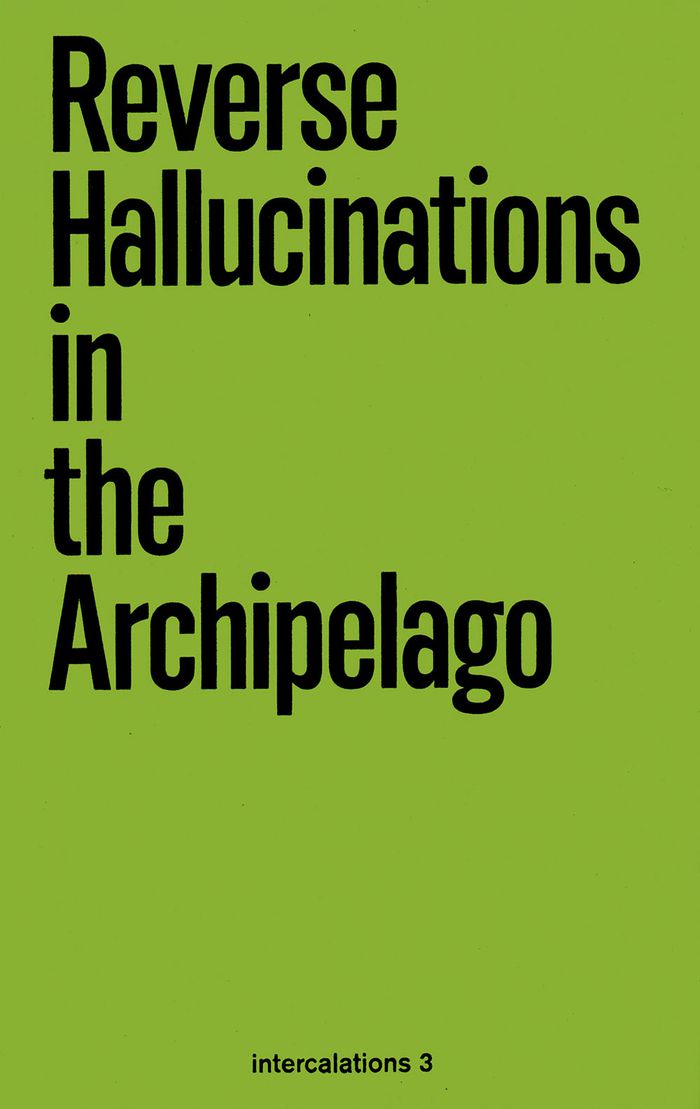$40.00
(available to order)
Summary:
The fourth edition of the ‘Intercalations’ series borrows its title from a 1972 science fiction novella by Ursula K. Le Guin posing ethical questions about ecocidal violence. In response to their violent destruction, which characterises our current epoch, these pages traverse woodlands by way of their semiotic, socio-political, historical, and epistemic incitements in(...)
The word for world is still forest : intercalations 4
Actions:
Price:
$40.00
(available to order)
Summary:
The fourth edition of the ‘Intercalations’ series borrows its title from a 1972 science fiction novella by Ursula K. Le Guin posing ethical questions about ecocidal violence. In response to their violent destruction, which characterises our current epoch, these pages traverse woodlands by way of their semiotic, socio-political, historical, and epistemic incitements in order to reveal how practices of care, concern, and attention enable humans to inhabit this world and flourish. The exercise creates space to consider how forests can enable experiences of elegance, affirmation, and creation for a multitude of creatures. Includes contributions by Pedro Neves Margues, Eduardo Kohn, and more.
Critical Theory
$40.00
(available to order)
Summary:
The ‘Intercalations’ series is an experimental foray exploring the structure of the book as a potential curatorial space. This third instalment, co-edited by Anna-Sophie Springer and Etienne Turpin, unfolds an itinerant encounter with 19th-century European naturalists in the Malay world, where the theory of evolution by natural selection emerged alongside less celebrated(...)
Reverse hallucinations in the archipelago: intercalations 3
Actions:
Price:
$40.00
(available to order)
Summary:
The ‘Intercalations’ series is an experimental foray exploring the structure of the book as a potential curatorial space. This third instalment, co-edited by Anna-Sophie Springer and Etienne Turpin, unfolds an itinerant encounter with 19th-century European naturalists in the Malay world, where the theory of evolution by natural selection emerged alongside less celebrated concerns about mass extinction and climate change. By re-considering the condition of colonial science in the tropics, we may find particular relevance for confronting forms of neo-colonisation in the Anthropocene. With contributions by George Beccaloni, Lucy Davis, Paulo Tavares, Rachel Thompson, and several others.
Critical Theory

